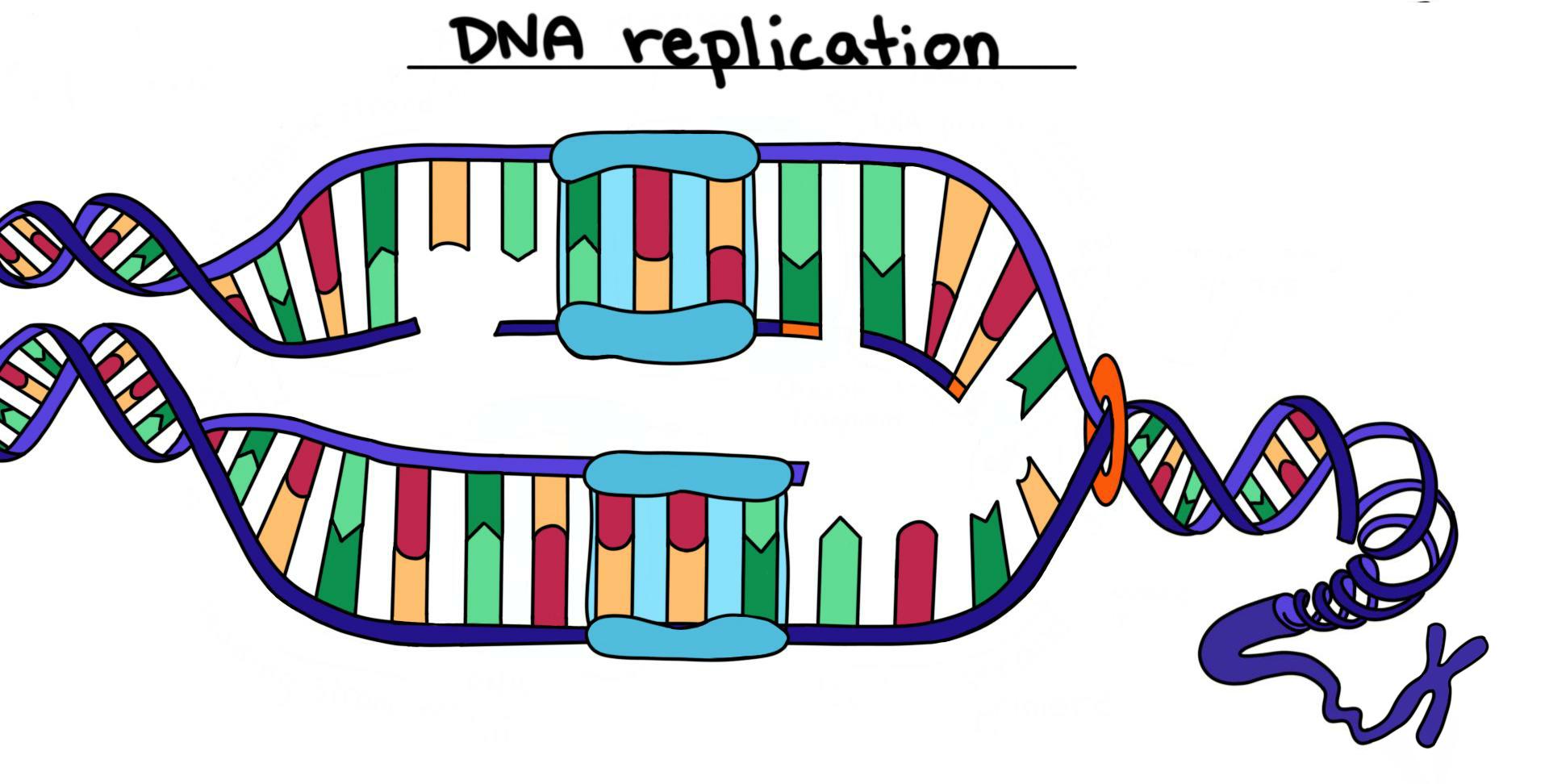Why is dna replication important to the growth and development of a multi-cellular organism and all living organisms: South African Curriculum: CAPS. Grade 12, Grade 11, and Grade 10.
Need Help?
[quform id="1" name="Schools Form"]DNA replication is important because it:
Doubles the genetic material so it
- can be shared between the resulting daughter cells during cell division.
- Results in the formation of identical daughter cells during mitosis.

Table of Contents
Why is dna replication important to the growth and development of a multi-cellular organism and all living organisms
DNA replication must occur for cells to divide and specialize, and for a multi-cellular organism to grow. Each time cells divide, the entire set of chromosomes has to be replicated. What actually happens at the molecular level is the “unzipping” of the DNA strands just before division, with each chromosome being duplicated before the duplicates move to each of the two cells being formed (regular cell division — mitosis). During the process, the entire strands of DNA are replicated. Each “daughter” cell receives the complete set of DNA that has just been replicated, not just a portion of the total.
What’s really interesting is specialization of cells in multi-celled organisms, like humans. We have 3 main kinds of muscle cells, 3 main kinds of nerve cells, plus bone, skin, and blood cells, and that’s really just scratching the surface in describing specialization. Each of these types of cells retains the entire DNA sequence, but various segments of the genes are “turned on” for different purposes. Red blood cells lose their nuclei and don’t reproduce in the bloodstream. Every time cells divide in a human embryo there is slightly more specialization, due to the effect of the genes presenting their specialized effects at the appropriate time. When you consider the complexity of the process, it’s amazing that anyone is born “normal.”
The sex cells that will be transmitted to the offspring are a special case of replication, because “reduction division,” or meiosis, results in the sex cells having half the normal number of chromosomes, which normally occur in pairs. This allows half the chromosomes from the mother to combine with half from the father to form a new organism with a complete set of chromosomes. All organisms that reproduce sexually undergo meiosis to form sex cells. The “parent” cells first divide to produce two daughter cells that have the full set of chromosomes, and then these daughter cells divide without replicating the chromosomes, so they have half the normal number. One of each pair of chromosomes goes to the resulting sex cells. That’s why men produce both ‘X’ sperm and ‘Y’ sperm, because those sex chromosomes are normally paired together.
Other Grade 12 Past Papers and Memos
- Accounting Grade 12 past papers and revision notes
- Economics Grade 12 past papers and revision notes
- Mathematics Grade 12 past papers and revision notes
- Technical Mathematics Grade 12 past papers and revision notes
- Physical Science Grade 12 past papers and revision notes
- Life Sciences Grade 12 past papers and revision notes
- Technical Sciences Grade 12 past papers and revision notes
- Mathematics Literacy Grade 12 past papers and revision notes
- Biology Grade 12 past papers and revision notes
- Life Orientation Grade 12 past papers and revision notes
- Religion Studies Grade 12 past papers and revision notes
- Business Studies Grade 12 past papers and revision notes
- Consumer Studies Grade 12 past papers and revision notes
- Tshivenda Home Language Grade 12 past papers and revision notes
- IsiXhosa Home Language Grade 12 past papers and revision notes
- IsiZulu Home Language Grade 12 past papers and revision notes
- Sepedi Home Language Grade 12 past papers and revision notes
- Sesotho Home Language Grade 12 past papers and revision notes
- Setswana Home Language Grade 12 past papers and revision notes
- Seswati Home Language Grade 12 past papers and revision notes
- Afrikaans Home Language Grade 12 past papers and revision notes
- English Home Language Grade 12 past papers and revision notes
- Xitsonga Home Language Grade 12 past papers and revision notes
- Tourism and Hospitality Studies Grade 12 past papers and revision notes
- Computer Applications Technology Grade 12 past papers and revision notes
- Civil Technology Grade 12 past papers and revision notes
- Electrical Technology Grade 12 past papers and revision notes
- Engineering Graphics and Designs Grade 12 past papers and revision notes
- Information Technology Grade 12 past papers and revision notes
- Mechanical Technology Grade 12 past papers and revision notes
- Agricultural Sciences Grade 12 past papers and revision notes
- Agricultural Technology Grade 12 past papers and revision notes
- Agricultural Management Practices Grade 12 past papers and revision notes
- Dance Studies Grade 12 past papers and revision notes
- Design Grade 12 past papers and revision notes
- Dramatic Arts Grade 12 past papers and revision notes
- Music Visual Arts Grade 12 past papers and revision notes
View all Grade 12 Past Papers here
Did You See These?
- Latest Life Sciences Grade 12 2022 Term 3 September Exam Question Papers with Memorandum
- Life Sciences Grade 12 November 2021 Examination Final Question Papers with Memos to revise with
- Differences between DNA and RNA: South African Curriculum CAPS (South Africa)
- List of Life Sciences essays for Grade 10, 11 and 12 (South Africa)

